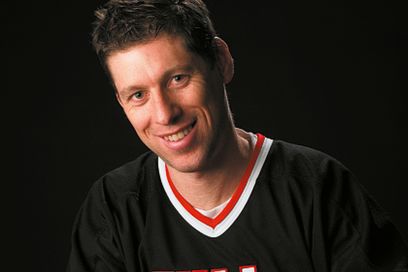By Chris Ferguson
 Was often questioned me on my style of play. But it is more interesting to hear my opponents describe my game that m hearing me describe it. And j often hear comments of the kind: "you're too tight. "You're too Stuart. "You're tight-aggressive. "You're too passive.
Was often questioned me on my style of play. But it is more interesting to hear my opponents describe my game that m hearing me describe it. And j often hear comments of the kind: "you're too tight. "You're too Stuart. "You're tight-aggressive. "You're too passive.
Till today, I n have not yet heard the last, but j. heard all the others, that m makes to think that I must be doing something correct. Stuart, tight, aggressive my style is everything at the same time, depending on the circumstances.
 Was often questioned me on my style of play. But it is more interesting to hear my opponents describe my game that m hearing me describe it. And j often hear comments of the kind: "you're too tight. "You're too Stuart. "You're tight-aggressive. "You're too passive.
Was often questioned me on my style of play. But it is more interesting to hear my opponents describe my game that m hearing me describe it. And j often hear comments of the kind: "you're too tight. "You're too Stuart. "You're tight-aggressive. "You're too passive.Till today, I n have not yet heard the last, but j. heard all the others, that m makes to think that I must be doing something correct. Stuart, tight, aggressive my style is everything at the same time, depending on the circumstances.
One of the most important things to play winning poker is to force its opponents to take difficult decisions. C is why raiser is almost always better than caller because it forces opponents to take a decision more. To go a little further with this reflection you will earn more money d by forcing your opponents to take decisions more out of their comfort zone.
Here are some examples:
Your opponent is on your left, playing way too tight before the flop. You want to punish him for it. The best way to do so is raisant more often and being aggressive. Either you steal him lot of blinds, it must s adjust.
If you pick up the blinds? Excellent! S it s adjusts? Even better! C is the best you can get. S he started to play more hands preflop, you now have a real advantage over him. Each time qu an opponent changed his style of game preflop, it is collected in trouble later in the hand. A player who usually plays very strong hands will not know what to do at the turn and the River with, say, a hand force average.
If a tight player raise in front of you, wait d have a better hand front of caller. Playing so tight when you talk after your opponent, you can avoid losing money l against a stronger hand. Again, if your opponent s adapted to your strategy, it will be forced to play more hands and you can dominate after the flop.
Is what the player who plays too many hands? If you speak first, you want the best hands of departure as normal. The value that you can pick up marginal hands comes from the fact that your opponents will fold most of the time. If your opponent n never saw assorted cards qu it n like, your marginal hand value decreases because your opponent is unlikely to lie. He can win more pot preflop, but this is nothing compared to l money you make on the flop with the force of your hands.
If a Stuart opponent raises you, you caller or even raise it with a weaker hand than. By taking control of the hand, you can take more pots later. Again, you try to change the style. S it does not, you get the best. S it is, c is a fish out of water that will make errors later in the hand.
C is important have several tools in its arsenal. First, that helps you to adapt to your opponents and to pull them out of their comfort zone. In addition, this will allow you to take advantage of the image that you at the table when you decide d be tighter or more Stuart thereafter, according to the adjustment that you'll found it necessary.
For example, Gus Hansen and Phil Ivey are known to be very aggressive players. The only way they had to survive with this image, c is that they are able to s adjust, according to opponents, in relaxing a little l aggression, when appropriate. I saw this happen a few times when an opponent s is set to respond to their aggression. They are able to feel what is happening and change their style when necessary. Other times, they do s will not adjust and leave their opponents try to beat them in unorthodox part.
The best way to take advantage of it is PORTER ATTENTION! To everyone. At any time. Not only when you are in hand; especially when n not in the hand. Each hand that your opponent plays allows you to accumulate information about him; You can better anticipate the way in which it will have to play future hands.




